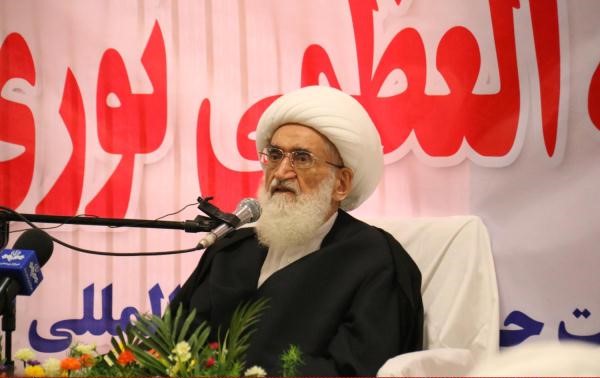
RNA – Grand Ayatollah Hoseyn Nouri-Hamadani referred to the current situation in the Middle East, saying, “We are sitting at the table of Islamic Revolution and we must not remain quiet. For this same reason, knowing the enemies and preparing the people is the most important duty of the Seminary in the current era.”
The revered source of emulation emphasized that the Iranian Islamic Revolution is the basis of the awaited revolution of the Imam al-Mahdi and added “All seminarians must be revolutionary and this spirit must be established in every country as by protecting the Revolution, they will pave the ground for the reappearance of Imam al-Mahdi.”
He explained that knowing and recognizing the enemy is necessary, saying that the Islamic Revolution is a divine gift that must be protected through Islamic unity and through the recognition and study of its foundations from books such as Sahifeh-ye Nour and the last will of the founder of the Islamic Revolution, Imam Khomeini.
Ayatollah Nouri-Hamadani said that paying attention to the pillars of the Revolution is another important issue and this should be realized by protecting the Revolution. “Religion and pure Islam, the people and wilayah (guardianship) are the three pillars of the Revolution,” he said.
Noting the importance of the presence and service of the people to the Revolution, he said, “Imam Khomeini brought the people into the political arena and due to this, he destroyed the tyrant Pahlavi regime.”
Ayatollah Nouri-Hamadani said that knowing and introducing the fruits, goals and dangers of the Revolution is another important method of protecting the Revolution.
His Holiness said that in order to protect Islam, two fronts were formed by the Prophet Muhammad – a military front and a scholarly front and in explaining the importance of efforts of religious scholars, he said, “Some scholars are champions of both sides. They are active on the battlefield and in the promotion and dissemination of religious sciences and have provided great services to protecting the religion.”
111/112